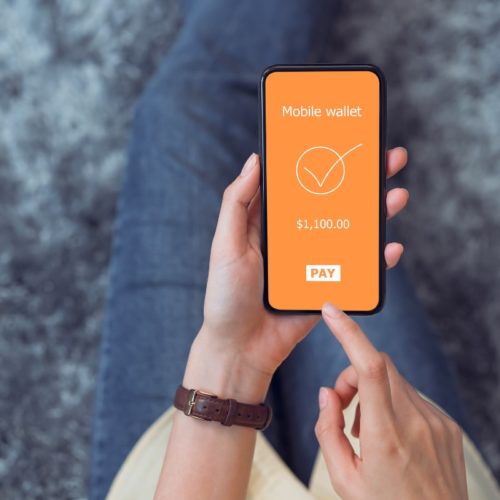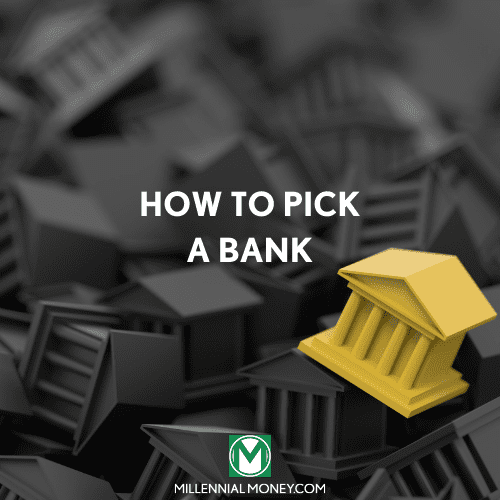You can get money orders at almost any bank or credit union, but sometimes, making a trip there isn’t too convenient. So, let’s talk about other places to get money orders that suit your schedule better.
Buying a money order may seem a little prehistoric – but I’m convinced they are still one of the best ways to pay someone.
So, if you’re asking yourself the following questions – why would anyone want to use a money order? Where can I get a money order near me? And, most importantly, where can I get the best deal? – Read on.
11 Places to Get Money Orders Near Me
Here are the best places to get money orders near me:
- 7-Eleven
- Walmart
- CVS
- Meijer
- Publix
- Kroger
- Postal Service
- Western Union
- MoneyGram
- Your Local Check Cashing Company
- Your Local Bank or Credit Union
1. 7-Eleven
- Limit: $500
- Fee: $0.65 minimum, 1-3% of total money order
- Provider: MoneyGram / Western Union
With over 9,000 locations in the U.S., 7-Eleven is one of the first retailers that pops to mind when someone asks me about buying money orders.
Buying a money order at 7-Eleven will cost you 1-3% of the total amount of the money order – but their fees also depend on the location. There’s a minimum fee of $0.65.
7-Eleven uses MoneyGram or Western Union, depending on where the store is located. The maximum money order amount is $500.
2. Walmart
- Limit: $1,000
- Fee: $1.00
- Provider: Western Union
Walmart is another retailer you can get money orders from – and is probably one of the most competitive options in terms of price.
There’s probably a location near you with 4,622 Walmart stores throughout the United States. Once you pop into the store, you’ll see a kiosk or an area for check cashing – and that’s where you can also buy money orders.
Walmart issues money orders from Western Union, and you will pay a small handling fee of $1.00 per money order. The limit for money orders from Walmart is also higher than the one offered by 7-Eleven – $1,000 max.
You can also cash a money order at Walmart (make sure you bring a photo ID) – but only if it was purchased at a Walmart store. Cashing a money order costs between $3 and $6.
3. CVS
- Limit: $500
- Fee: $1.25
- Provider: MoneyGram
You may be surprised, but pharmacy stores like CVS also issue money orders. Also, there are over 9,406 CVS locations, meaning you can never be too far from one.
CVS uses MoneyGram money orders and charges $1.25 per money order. The maximum money order amount offered by CVS is $500.
One thing you’ll love about CVS is its high-quality customer service. You may enjoy getting your money order here vs. other places nearby.
4. Meijer
- Limit: $500
- Fee: $0.65
- Provider: Western Union
Several grocery stores sell money orders, and Meijer is one of the most popular. The company has over 266 stores, with most locations in Michigan, Ohio, and Indiana.
They use Western Union money orders, and you will pay 65 cents per money order. Like in many other issuing stores, their maximum amount for a money order is $500.
However, unlike Walmart, Meijer will not cash money orders at any of its locations.
5. Publix
- Limit: $500
- Fee: $0.85
- Provider: Western Union
With over 1,400 stores across Florida, Alabama, Tennessee, Georgia, South Carolina, and North Carolina, regional store Publix is another place you could get a money order from. However, bear in mind that their charges are a little higher than those of some of the other sellers I’ve mentioned, and each money order will cost you 85 cents.
They use Western Union money orders, and there is a $500 limit. Also, if you’re looking to cash money orders, Publix doesn’t offer this service.
6. Kroger
- Limit: $1,000 – $500
- Fee: $0.69 – $1.00
- Provider: Western Union
Kroger has over 2,900 stores across the U.S., which operate under several brand names (such as King Soopers, Smith’s, Cala Foods, Fred Meyer, Dillon’s, and others).
You can purchase Western Union money orders at Kroger’s, which cost roughly a dollar per order. That said, fees can vary by location and subsidiary – as well as whether they sell money orders at all.
Depending on location, the maximum money order amount is either $500 or $1,000.
7. Post Office or Postal Service
- Limit: $1,000
- Fee: Varies, $1.20 – $3 typically
- Provider: USPS
United States Postal Service (USPS) also sells money orders – and with over 31,000 post office locations in the U.S., it’s probably one of the most convenient ways to buy.
Unlike other money order providers, USPS doesn’t use Western Union or MoneyGram – but will sell you their own brand money orders– called a Postal Money Order.
Each postal money order up to $500 costs $2.10, with $3 for money orders over $500. This is on the pricier end compared to a few other money order providers I’ve mentioned. There’s also a limit of $1,000 max per money order.
You can also cash money orders at USPS, but rules, regulations, and fees differ by location – so check to see what they are in your local post office. Customer service varies by location, also!
8. Western Union
- Limit: $1,000
- Fee: $0.65 – 3.76
- Provider: Western Union
With over 61,000 agency locations, Western Union is one of the most common places to get money orders.
These locations vary from pharmacies, supermarkets, and grocery chains such as Kroger, Walmart, and Safeway.
With a maximum limit of $1,000, fees vary depending on location, but you can expect to pay between $0.65 and $3.76 for every $100.
9. Moneygram
- Limit: $1,000
- Fee: $0.70
- Provider: Moneygram
Moneygram has almost 22,000 locations across the United States and is another highly convenient option for money orders. Moneygram is most notably located in many CVS and Walmart locations.
The fees vary depending on the location but start at .70 cents with a maximum limit of $1,000.
10. Your Local Check Cashing Company
Many check cashing companies also sell money orders – all you need to do is search for “buy money orders near me,” and you will probably be shown several pages of search results.
However, it’s important to spend some time comparing their fees since they can vary greatly. Check cashing companies often charge higher fees in general – so ask about their fees in advance to avoid an unpleasant (and costly!) surprise.
11. Your Local Bank or Credit Union
This is probably one of the most obvious places for buying money orders, which is why it’s almost the last one on the list. The thing about buying money orders at a bank or credit union is that you will most likely have to pay a few dollars more than at a grocery store – so it may only be an option if it’s just a one-off rather than a regular purchase.
Don’t have a bank account? Some banks might sell money orders to non-customers, too – but be prepared to pay even higher fees.
Also, each bank will have different regulations and fees for buying and selling money orders – so make sure to get in touch with your local bank for more information or look it up online before you buy.
What is a Money Order?
A money order is similar to a check, in that it’s essentially a document used for making payments (although there are some key differences).
The biggest difference between a check and a money order is that money orders are prepaid. While you probably have blank checks in a drawer somewhere (or in your wallet, if you’re old school like that), a money order will only be issued after you’ve handed over actual funds.
The buyer will need to pay both the cost of producing the money order (the fee charged) and its issued amount.
That can be done in cash, by debit card, traveler’s checks, or by using another form of guaranteed funds.
Why Use a Money Order?
If you haven’t used money orders and are wondering why someone would want to use them – here’s why:
- Privacy. Imagine you’re paying a person or company you don’t entirely trust and don’t want to share your personal information. How would you make sure the payment reaches them without you sharing any personal info? While checks will include that kind of information, money orders don’t – so your privacy is protected.
- Guaranteed Funds. Since money orders are prepaid, you won’t have to worry about bouncing a check – sufficient funds are guaranteed.
- Theft Protection. Money orders are also an excellent and safe way to send money to your friends or family. It is even safe to mail a money order! Since you will be specifying the recipient’s name on the money order, it would be nearly impossible to steal your money.
- Safety. Finally, what if you don’t have a checking account yet but want to pay for a larger purchase? Carrying a suitcase stuffed with cash isn’t a smart idea. Using a money order, on the other hand, is.
Frequently Asked Questions
If you’re new to money orders, perhaps these frequently asked questions can help:
Can you buy a money order with a credit card?
Yes, most credit card providers allow you to buy a money order with a credit card. But, it’s important to note that the transaction will usually be treated as a cash advance. This means additional fees and interest, just like using your credit card to take out cash at an ATM.
What’s the difference between a money order and a check?
When you pay someone by personal check, the money won’t actually be withdrawn from your checking account until the payee “cashes” the check. Money orders work differently in that you actually purchase them upfront, paying money right away. The receiving party can then convert that money into cash right away.
How much do money orders cost?
Depending on the facility you purchase them from, some fees range from less than a dollar to upwards of $3. Often, they are dependent on the issued amount.
Can you buy multiple money orders?
Since most places have a maximum of $500 or $1000 per money order, you may need to purchase multiple money orders if you need larger amounts than this. However, some locations require you to fill out additional forms before they will sell you multiple money orders.
It’s best to check with the location you plan to buy your money order from, or another option for larger money transfers is to use a cashier’s check (which is issued only at banks).
Know Where to Get A Money Order When You Need One
To sum up, money orders are an excellent way to pay for things – be it your bills, rent, or utilities.
They also come in handy if you’re looking for a safe way to send money to your family or friends – or pay someone you don’t want to share your personal details with.
While several companies offer money orders, be smart and pick the one that’s the most suitable for you. The good thing about getting your money order at a retail store is that you could save yourself a trip to the bank and get a money order while you’re out grocery shopping. Time is money, right?
I hope the information I’ve provided will help you make the right decision – and spend as little as possible!





Read 1 comment
Read Comments